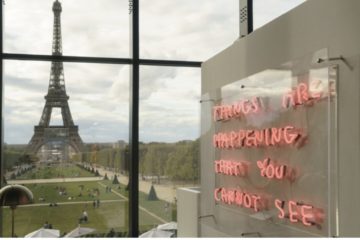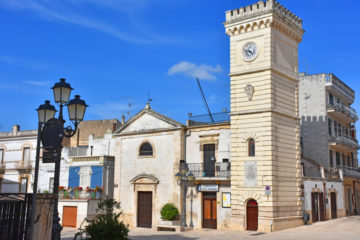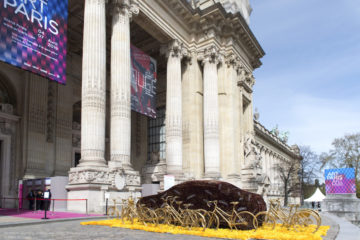J. PAUL GETTY TRUST AND THE HELLENIC REPUBLIC MINISTRY OF CULTURE SIGN AGREEMENT CREATING FRAMEWORK FOR CULTURAL COOPERATION
![James Cuno [left], President & CEO of the J. Paul Getty Trust, and Pavlos Yeroulanos [right], Minister of Culture and Tourism for the Hellenic Republic © J. Paul Getty Trust James Cuno, President & CEO of the J. Paul Getty Trust, and Pavlos Yeroulanos, Minister of Culture and Tourism for the Hellenic Republic © J. Paul Getty Trust](https://www.1fmediaproject.net/new/wp-content/uploads/2011/09/IMG_1509.jpg)
“I am pleased to have the opportunity to join Minister Yeroulanos in signing this framework which strengthens an already excellent relationship between the Getty and the Hellenic Republic. This agreement is consistent with the Getty’s strong acquisitions policy, and equally strong regard for scholarship as the basis for resolving issues and collaborating on projects of mutual interest,” said James Cuno. “The Getty is committed to the preservation of the world’s artistic legacy and this agreement with Greece advances our effort.”
“The Hellenic Republic and the Getty share a mutual interest in and concern about issues of cultural heritage. The framework we signed today benefits both parties and sets the foundation for a long-term partnership. The exchange of scholars and joint research projects will expand the world’s understanding of Greek culture, while loans and the mutual development of exhibitions at the Getty Museum will promote Greek culture nationally and internationally and help draw more visitors to Greece,” said Minister Yeroulanos.
Among other provisions, the agreement encourages the exchange of scientists and scholars in the fields of archaeology, art history, conservation, cultural information technology and other fields of common interest in research and training.
“This framework is testimony to the relationships and ongoing dialogue that the Getty has developed with colleagues in Greece following the resolution of issues relating to objects from the Getty’s antiquities collection,” added David Bomford, acting director of the J. Paul Getty Museum. “The agreement provides us the confidence to develop long-term plans with the Ministry that will bring spectacular works to Los Angeles that further our visitors’ understanding of Greek history and art.”
In conjunction with the signing of the agreement, David Bomford announced that the J. Paul Getty Museum plans to transfer two objects to the Hellenic Republic Ministry of Culture and Tourism based on discussions between the two parties. Consistent with Getty policy, the decision to transfer these objects was made after a thorough scholarly review.
Minister Yeroulanos added: “The Getty’s decision to transfer two objects is particularly welcome and is an example of the Ministry’s efforts to reunify, repatriate, and exhibit Greek antiquities in their country of origin.”
The objects are fragments of a grave marker and a Greek language inscription, both acquired in the 1970s. The grave marker fragments, which have never been on view at the Getty, join directly to another fragment of the same funerary relief in the Kanellopoulos Museum in Athens. They depict two female figures, a woman seated on the left and a slave in front with her right hand on her cheek. The work is a fine example from an Attic sculpture workshop and dates to the late 5th century B.C.
The inscribed stele, which has text on the front and two flanking sides, describes sacrifices and festivals celebrated in Thorikos, in southeast Attica, in honor of local deities and heroes. Dated from 430 to 420 B.C., the inscription consists of 65 lines and is incomplete in the upper left part. It was acquired by the Museum in 1979, and is an important document of its kind. The object is currently on view at the Getty Villa in Malibu.
“We are delighted that the Ministry has agreed to a reciprocal loan for the stele that will allow the Villa to continue to present visitors with an example of ancient Greek writing,” said Bomford. “We look forward to meeting with our colleagues at the Ministry next month in Athens to continue our discussions with regard to future collaborations, which will help convey the richness of Greek culture to American audiences.”
The Getty Villa in Malibu is an educational center and museum dedicated to the study of the arts and cultures of ancient Greece, Rome, and Etruria.
http://getty.edu/index.html – Julie Jaskol, Communications The J. Paul Getty Trust, (310) 440-7607 jjaskol@getty.edu






No Comment